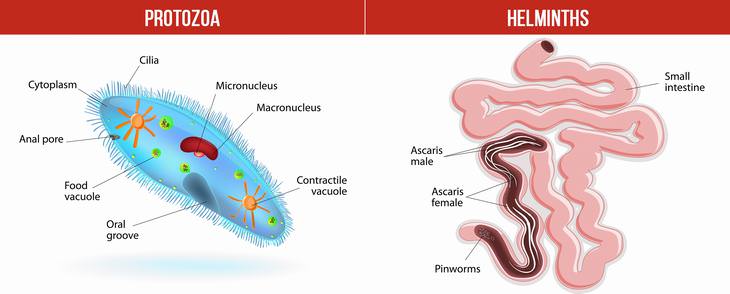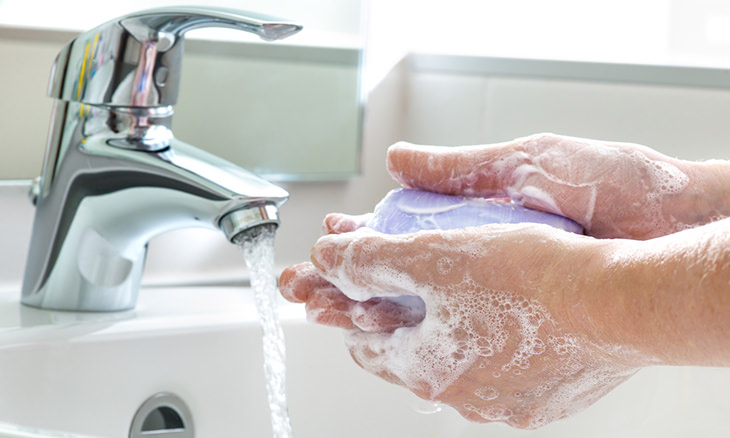Astrologer Vighnesh India: +91 9445548316 / 9382633377 USA: +1 (425) 358-6565 / +1 (716) 777-3857 Wat'sapp..Consultation by web appointment www.astrovighnesh.com
Astrologer in US : #Astrologer in USA : #Astrologer in India : #Astrologer in Chennai : # Best Astrologer in :#Pancha Pakshi Astrology : #Astrologer in Malaysia : #Astrologer in Sri Lanka : #Astrologer in Dubai : #Astrologer in UAE
It’s a common misconception for people to think that intestinal parasites are only a thing in underdeveloped countries, but they’re much more common in developed countries than you might think. Over 3 billion people around the world have or have had intestinal parasites at some point in their lives, according to the World Health Organization. Here’s all you need to know about them:
There are many different kinds of parasite, however the two main types of intestinal parasite are helminths and protozoa. The former consists of worms with many cells that cannot multiply within the confines of the human body. Examples of these are tapeworms, pinworms and roundworms. On the other hand, protozoa are single-cell organisms that have the ability to multiply inside the human body. They can cause very serious infections.
Intestinal parasites are usually transmitted when coming into contact with infected feces, such as through contaminated soil, food or water. Other factors, such as visiting an area known to have parasites, poor hygiene, and sanitation, having a weak immune system, handling animals, and the age of the individual, increase the risk of contracting intestinal parasites. Children and the elderly are most at risk, and what’s more is that intestinal parasites are contagious and can be passed on to others with ease.
In essence, intestinal parasites are dangerous because they feed off of our bodies. When our intestines become hosts for parasites, not even the high level of acidity in the gut is enough for the body to protect itself, so it turns to the immune system for protection instead. This often leads to an inflamed gut.
Intestinal parasites inhibit the correct absorption of nutrients into the body, as well as release toxins into the bloodstream and lymphatic system. In addition, a bowel obstruction can occur in the event of a severe infection. This obstruction (if not a total blockage) prevents food, fluids, and gas from moving through the intestines normally. Severe infestation can even cause anemia due to bleeding in the intestines.
6. Skin disorders, such as acute itching or pain around the rectum and other body parts, rashes or other skin irritations
You can rid yourself of a parasitic infection through conventional medication or through the use of alternative medical treatments. Consult your doctor if you believe that you might be hosting an intestinal parasite.
Your doctor will be able to tell you if you have an intestinal parasite by conducting a simple stool test. If the test is positive, then they will prescribe medication accordingly.
Garlic, goldenseal, barberry, anise, Oregon grape, wormwood, wormseed, black walnuts, curled mint, cloves, oregano, thyme, and olive leaf are among the most commonly-prescribed herbs to treat intestinal parasites, but consult your physician prior to ingesting any.
You should always consult a physician prior to taking any supplements, but probiotics, digestive enzymes, vitamin C and zinc can all help to heal you of internal parasites.
Cina, indigo, spigelia, podophyllum, cuprum oxidatum nigrum, teucrium, sabadilla, stanum are all good remedies for intestinal parasites.
A diet rich in raw garlic, pumpkin seeds, papaya seeds, pineapple, carrots, beets, and pomegranates can help to kill parasites.
Try eating a high-fiber diet inclusive of psyllium husks, citrus pectin, papaya extract, bentonite clay, activated charcoal, pumpkin seeds,beetroott, and flaxseed. These will do wonders for detoxifying your body.
Parasitic infections are highly contagious, with parasite eggs potentially being passed on easily to anything (or anyone) you touch. It’s crucial to wash your hands and maintain good hygiene to reduce the chances of further transmission. Pay attention to the quality of drinking water and the hygienic conditions of where your food is being prepared if you’re traveling overseas, and also wash any fruits and vegetables.









